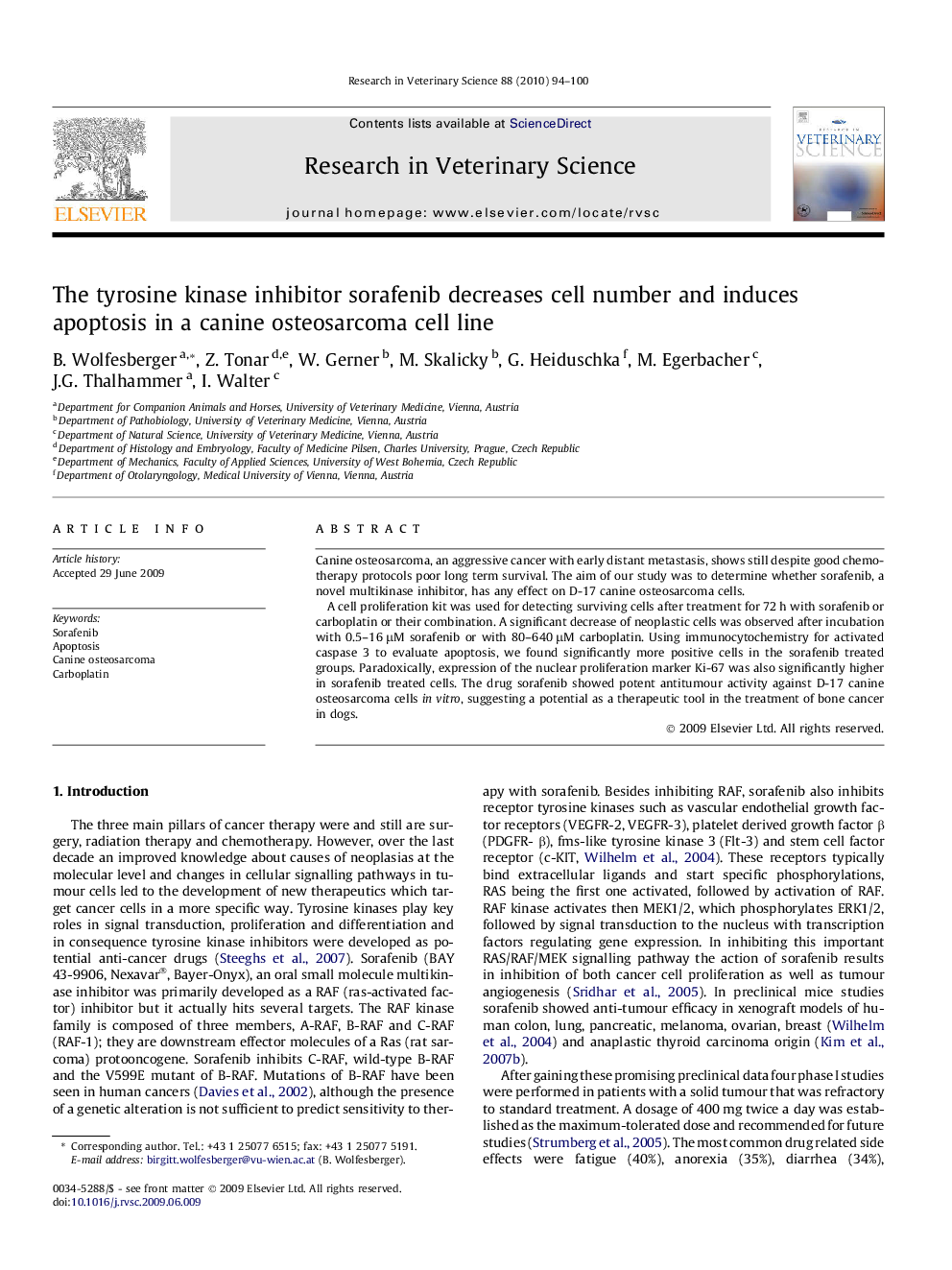| Article ID | Journal | Published Year | Pages | File Type |
|---|---|---|---|---|
| 2456058 | Research in Veterinary Science | 2010 | 7 Pages |
Canine osteosarcoma, an aggressive cancer with early distant metastasis, shows still despite good chemotherapy protocols poor long term survival. The aim of our study was to determine whether sorafenib, a novel multikinase inhibitor, has any effect on D-17 canine osteosarcoma cells.A cell proliferation kit was used for detecting surviving cells after treatment for 72 h with sorafenib or carboplatin or their combination. A significant decrease of neoplastic cells was observed after incubation with 0.5–16 μM sorafenib or with 80–640 μM carboplatin. Using immunocytochemistry for activated caspase 3 to evaluate apoptosis, we found significantly more positive cells in the sorafenib treated groups. Paradoxically, expression of the nuclear proliferation marker Ki-67 was also significantly higher in sorafenib treated cells. The drug sorafenib showed potent antitumour activity against D-17 canine osteosarcoma cells in vitro, suggesting a potential as a therapeutic tool in the treatment of bone cancer in dogs.
